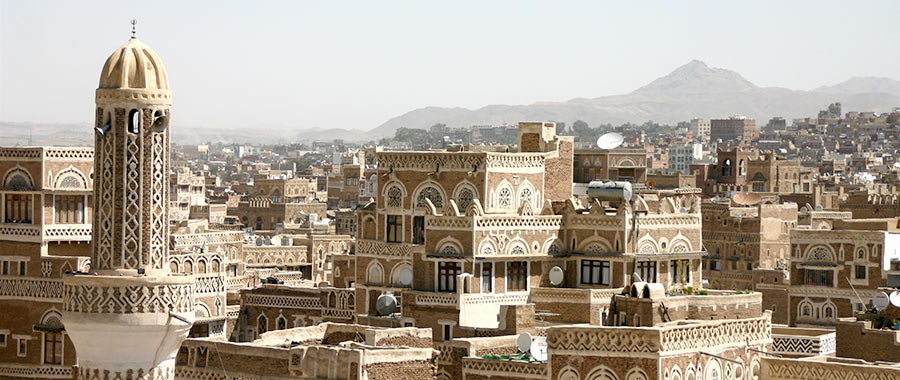The Bahá’í Faith, a religion that emerged in the mid-19th century, espouses core principles such as unity, justice, and the equality of all people. However, the recent death sentence imposed on a Yemeni Bahá’í has elicited profound outrage globally, raising critical questions regarding human rights and governance. What does this tragic circumstance reveal about the intersection of faith and justice in contemporary society?
In the context of the appalling death sentence of a Yemeni Bahá’í, we are compelled to examine the implications of such a sentence, and more broadly, the role of justice in the Bahá’í teachings. The case not only reflects the precarious position of religious minorities in certain regions but also challenges our understanding of how faith must translate into action against injustice.
Understanding the Context: The Bahá’í Faith in Yemen
The Bahá’í Faith, founded by Bahá’u’lláh in the 19th century, emphasizes unity among all people and advocates for principles such as the eradication of prejudice and the promotion of universal education. Despite its benevolent tenets, adherents in various regions, including Yemen, often face persecution due to their beliefs. The situation in Yemen is particularly dire. The ongoing conflict and the associated breakdown of law and order have created a landscape fertile for discrimination against minority faiths.
A Glimpse into Legal and Moral Justice
The imposition of a death sentence serves as a poignant reminder of the chasm that can exist between legal justice and moral justice. In the Bahá’í view, justice is not merely an abstract concept but a divine virtue that manifests in equitable treatment, compassion, and the safeguarding of human dignity. The Bahá’í writings stress that true justice must correspond with the principles of love and unity that define the Faith. Yet, how does one reconcile the Bahá’í ideals of justice with the stark reality of capital punishment? This question opens a dialogue not only on religious principles but also on universal human rights.
The Gap Between Ideals and Reality
A dichotomy exists between the ethical principles espoused by the Bahá’í Faith and the actions of some governments that contradict these teachings. The sentence given to the Yemeni Bahá’í epitomizes this contradiction. It prompts an investigation into how governments enforce laws that violate fundamental human rights and how they neglect international standards of justice. The Bahá’í teachings advocate for the protection and advocacy of the oppressed, urging followers to engage in social action. This call to act begs the question: What proactive steps can individuals and international bodies take to respond to such egregious violations?
Mobilizing Community and Global Action
One of the strengths of the Bahá’í community lies in its ability to mobilize people around the globe to advocate for justice. Community action can take many forms, from raising awareness to lobbying for policy changes. The global Bahá’í community can leverage its extensive network to call attention to the injustices faced by their coreligionists in Yemen. Furthermore, interfaith dialogue becomes instrumental in breaking down barriers and advocating for the dignity of all individuals, regardless of their religious affiliation.
The Role of International Bodies
International organizations, such as the United Nations, have a pivotal role in addressing human rights violations. When the death sentence of a Yemeni Bahá’í emerges in the global consciousness, these entities must act decisively. They can leverage diplomatic channels to advocate for the cessation of such inhumane practices, urging the Yemeni government to adhere to international norms concerning the treatment of minorities. The importance of international pressure cannot be overstated, as it can lead to tangible changes in policy and perceptions.
Combatting Indifference: The Call for Global Solidarity
The appalling death sentence handed to a Yemeni Bahá’í represents more than a singular tragic event; it mirrors a broader systemic issue facing numerous religious minorities. Indifference toward such injustices can foster an environment wherein persecution is normalized. The teachings of the Bahá’í Faith implore individuals to actively engage in the pursuit of justice. Thus, each one of us bears a responsibility to challenge apathy, educate ourselves and others, and stand in solidarity with the persecuted.
Rethinking Justice: A Path Forward
Justice within the framework of Bahá’í teachings transcends mere retribution. It advocates for restorative justice, focusing on healing and rehabilitation rather than punishment alone. For the case of the Yemeni Bahá’í, this implies a movement towards building a society that recognizes the intrinsic worth of every human being. As communities respond to the outcry for justice, they must cultivate compassionate discourse that embraces diversity and fosters understanding among differing beliefs.
Conclusion: The Imperative to Act
In conclusion, the death sentence of a Yemeni Bahá’í stands as a severe indictment of contemporary societal structures that fail to uphold the principles of justice and respect for human rights. The Bahá’í teachings resonate with a clarion call to action; they beckon each follower to rise against oppression and advocate for justice in a world rife with inequities. As we ponder this tragic situation, we must ask ourselves: what role will we play in the unfolding narrative of justice? Let us strive to be agents of change, standing for the rights of all individuals, fostering compassion, and upholding values that promote a just and unified world.
